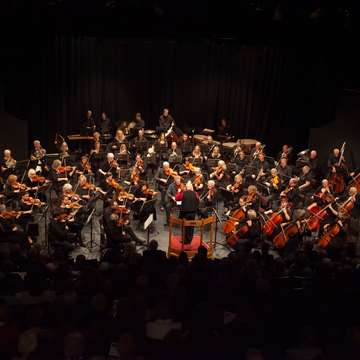https://events.onthewight.com/venues/medina-theatre
Medina TheatreThis event has now finished
Source http://www.medinatheatre.co.uk/article/isle-wight-symphony-orchestra-18

Hungarian Rhapsody No.2 Franz Liszt
Pavane pour une infante défunte Maurice Ravel
Violin Concerto in A minor Alexander Glazunov
Soloist: Charlie Lovell-Jones
Scheherazade Nikolai Rimsky-Korsakov
Liszt had a strong interest in Hungarian folk music and absorbed its influences in some of his own music. The best known of his folk inspired works are the Hungarian Rhapsodies.
The Hungarian Rhapsody No.2 in C minor is the best known of the set. To achieve its folk flavour, the Rhapsody is set in the form of a czárdás, a Hungarian dance that is traditionally laid out in two sections, one slow and one fast. Ravel's Pavane pour une infant défunte was originally a piano piece. Written whilst still a student, it was dedicated to the Princesses de Polignac (previously known as Winnaretta Singer, of the sewing machine dynasty) who was known for hosting musical soirées and probably attended by Ravel himself.
The orchestral version was premiered in Manchester in 1911, where the conductor was Sir Henry Wood. After Charlie Lovell-Jones's electrifying playing in last season's rendition of Coleridge-Taylor's Violin Concerto it was inevitable that he would be asked to return as soon as possible. We did not have to wait long. This time Charlie is treating us to Glazunov's Violin Concerto in A minor. It has the usual amount of lyricism, pyrotechnics and romantic appeal all wrapped in up in one seamless work. The fantastic collection of tales known as The Arabian Nights, or A Thousand and One Nights, has captivated readers for centuries.
The ancient stories, mostly of Arabic, Indian, or Persian origin were first translated in English in the late 19th century thanks to British explorer Sir Francis Richard Burton. To this day, the tales of Aladdin, Sinbad, and Ali Baba continue to weave their magical spell. Rimsky-Korsakov created his Scheherazade in the summer of 1888. The composer proudly acknowledged: "my orchestration had achieved a considerable degree of virtuosity and bright sonority."
Image: © With kind permission of Allan Marsh